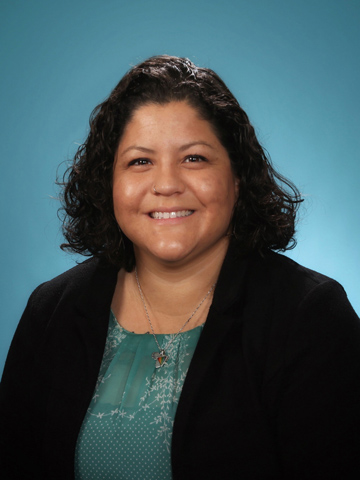Dr. Julia López: Bringing Real-World Experience into the Classroom
Dr. Julia López has many titles: professor, researcher, and licensed social worker.
With a background in mixed-methodological analysis, her work centers around mental health, health equity, and trauma-informed care, specifically for individuals who identify as LGBTQIA+ and Spanish-speaking individuals.
She has been an adjunct professor at Saint Louis University now for eight years, teaching public health and social-work topics, with an emphasis on inspiring students to be a part of difficult conversations.

Dr. López started her journey in social work, with the goal of becoming a licensed clinical social worker. As time went on, she felt called to understand and address the multi-level perspectives of care, and the systemic contexts of the issues she was so passionate about.
In the classroom and in her works, Dr. López discusses the importance of integrating the social and historical contexts in caring for people with multiple marginalized identities. She then focuses advocating for the structural changes that need to be made to deal with potential discrimination and oppression against the individuals that she works with.
‘Intersectionality’ is a major theme in any of the classrooms within which Dr. López teaches.
She discusses the importance of “longitudinal learning” for her students and showing them what public health work looks like as a professional. Students are encouraged to take the theories from the classroom and apply them to real world problems to understand health equity in the context of practice.
“That means having to be in those uncomfortable spaces when it comes to thinking about your own privileges when you are doing any kind of work in community spaces, and the influence of what power we have,” López said. “I think a lot of times it can be hard to think about what power students feel like they have because it often feels like students talk about not feeling very powerful in their roles as students.”
One of the biggest underlying themes throughout Dr. López’s work is the importance of trauma-informed care, and this does not just stop with health care but also translates issues like gun-violence. Dr. López’s focus centers around the survivors of school shootings.
With an increase in the number of school shootings and gun-violence in our country, Dr. López advocates for providing holistic trauma-informed care to survivors of school shootings to help them process their experience and what this meant for them outside of school, and adapt to create room for growth.
Dr. López also focuses on classroom fatigue that students experience through the course of a school year. The pressures of coursework and other contributing factors can create adverse and stressful experiences both in the field and in the classroom.
“The thing that is most costly and the thing that is hardest to find is time. ‘Burnout’ takes away our time and it is so important to find ways to bring it back to yourself,” López said.
She encourages the practice of mindfulness and thinking about where you are in relation to what you are doing. It just takes about 10 minutes each day to practice giving yourself the space and opportunity to think about what you feel and what you can do just for yourself today.
Dr. López continues to help students find the opportunity to understand public health in an intersectional context and inspire them to look forward to the work they will be doing in the future.
Putting theory into practice is a large part of public health work through research, clinical practice, or community work.
College for Public Health and Social Justice
The Saint Louis University College for Public Health and Social Justice is the only academic unit of its kind, studying social, environmental and physical influences that together determine the health and well-being of people and communities. It also is the only accredited school or college of public health among nearly 250 Catholic institutions of higher education in the United States. Guided by a mission of social justice and focus on finding innovative and collaborative solutions for complex health problems, the college offers nationally recognized programs in public health and health administration.